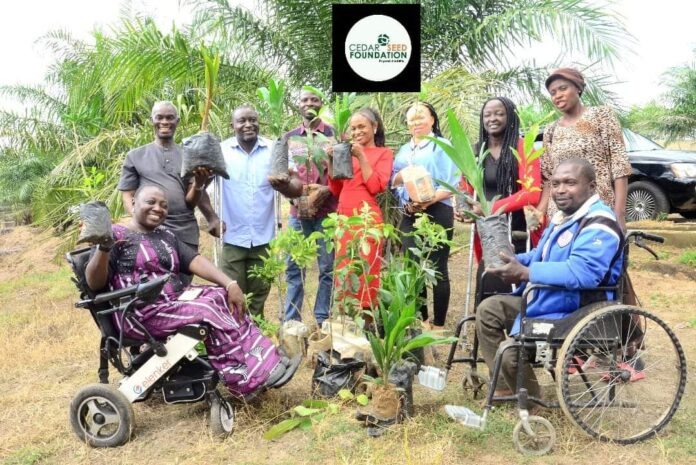Uke, Nasarawa State — In a remarkable celebration of International Youth Day 2024, Cedar Seed Foundation took a significant step towards climate action and economic empowerment by planting 38 economic trees on their farmland in Uke, Nasarawa State. This initiative was driven by the goal of inspiring and empowering youth with disabilities to take proactive measures in mitigating climate change within their communities, while also promoting sustainable economic growth.
The event, which took place on August 12th, saw the participation of 11 committed individuals, including 7 youth with disabilities. These young men and women, alongside community members, gathered not just to plant trees, but to sow the seeds of a future that promises both environmental sustainability and economic opportunity.
Empowering Youths with Disabilities: A Path to Climate Action
Cedar Seed Foundation, known for its dedication to the inclusion and empowerment of persons with disabilities, has long recognized the importance of involving marginalized groups in the global fight against climate change. This tree-planting exercise was not just a symbolic gesture, but a tangible action aimed at integrating youth with disabilities into climate mitigation efforts.
“The idea behind this initiative is to show that youth with disabilities are not only capable of contributing to climate action but are essential to the success of these efforts,” said Lois Auta, the Founder and CEO of Cedar Seed Foundation. “By engaging them in activities like this, we are fostering a sense of ownership and responsibility towards the environment, while also creating opportunities for economic empowerment.”
A Diverse Orchard: Planting for the Future
The farmland at Uke, now transformed into a budding orchard, features a variety of economic trees, each selected for their potential to provide both environmental and economic benefits. Among the 38 trees planted were 10 Palm trees, Dwarf Guava, Cherry Mango, Jully Mango, Dwarf Yellow Coconut, Green Coconut, Tangerine, Loly Pawpaw, Avocado, Indian Lime, Kiu Orange, Vendel Banana, Strawberry, Dwarf Pawpaw, Green Apple, Grape Vine, Brazil Cashew, Big Plantain, Dwarf Red Apple, Brazil Plantain, and Madeline Orange.
This carefully curated selection of fruit-bearing trees is expected to begin yielding produce within the next 9 to 12 months. The establishment of this fruit garden not only promises a future harvest that will benefit the community but also serves as a living example of how sustainable practices can lead to economic resilience.
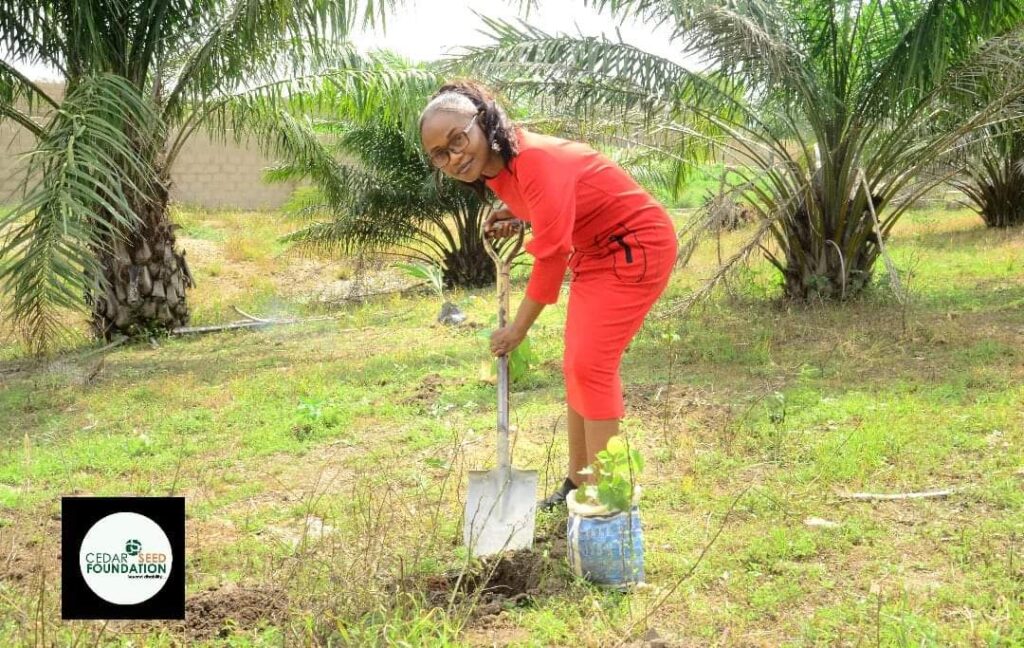
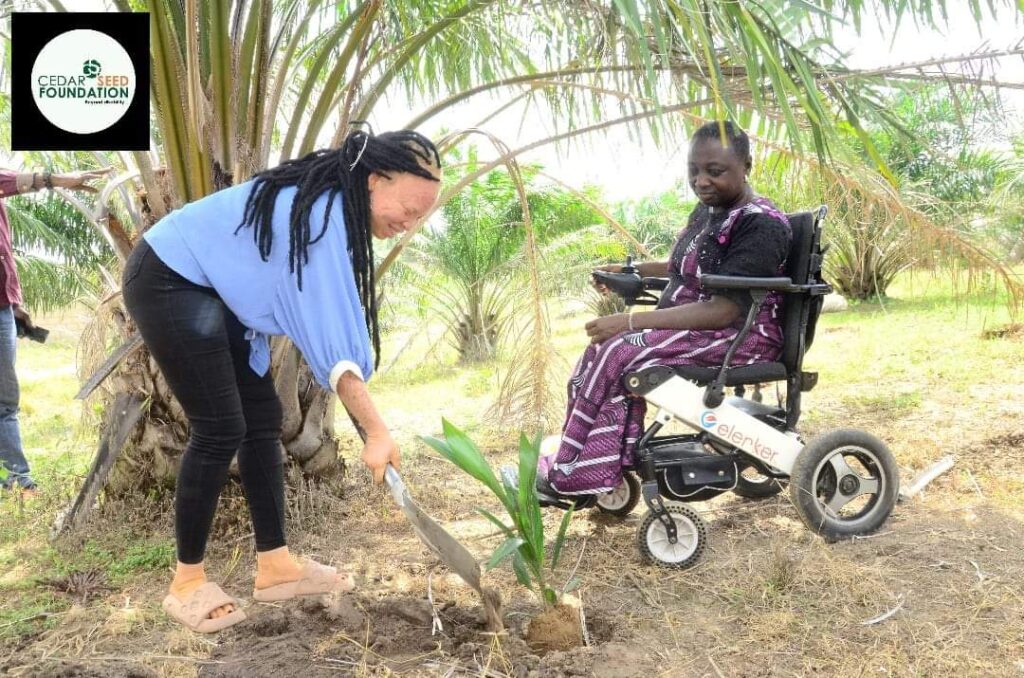
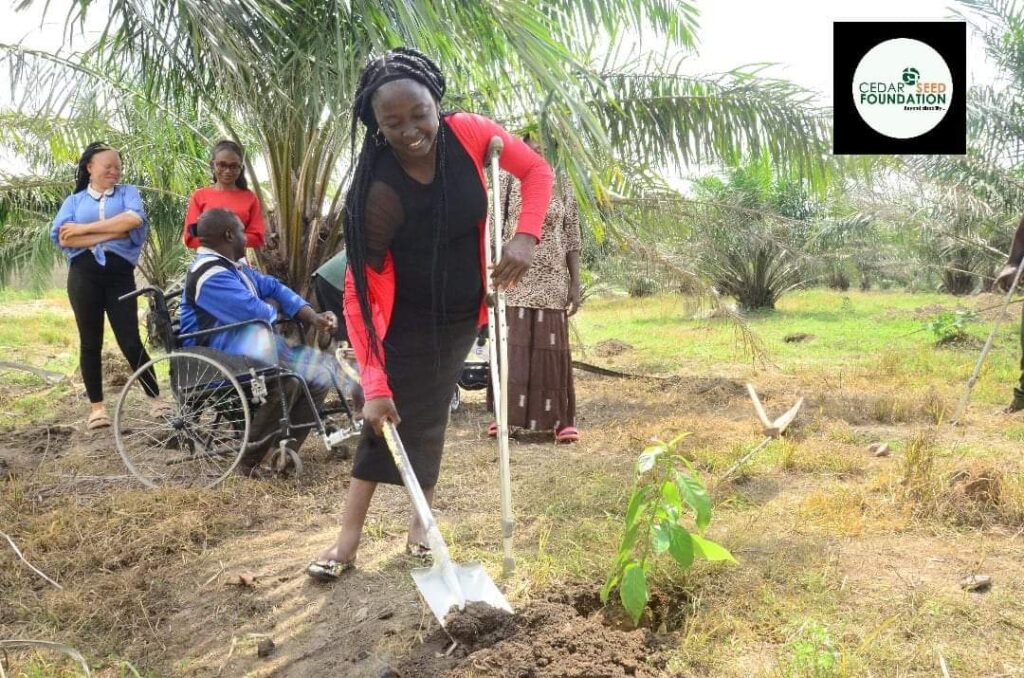
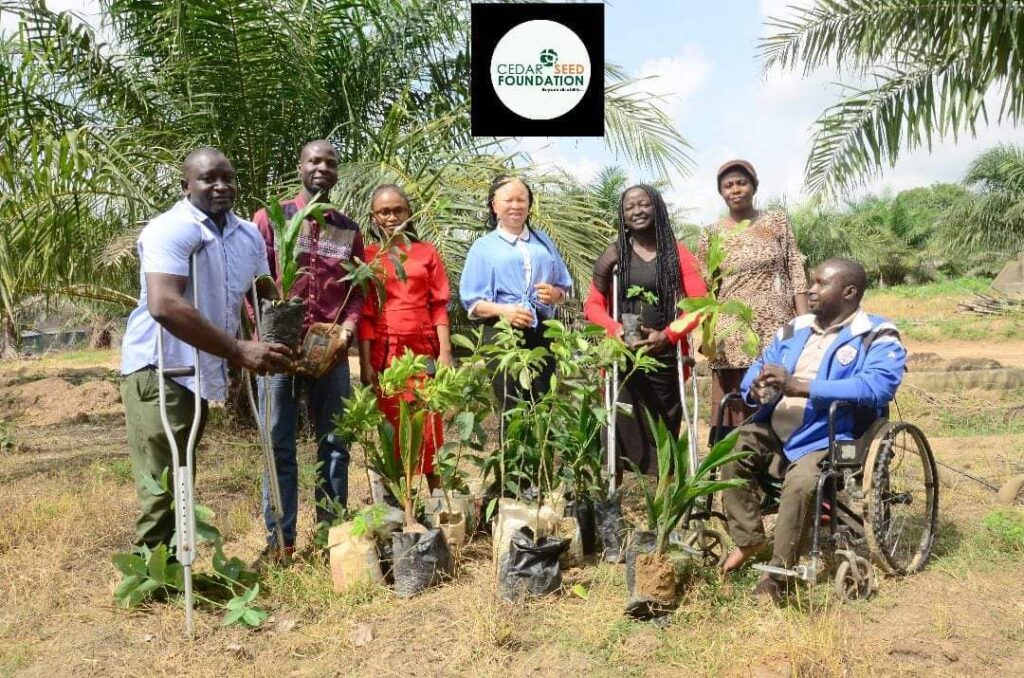
Community Participation: A Shared Vision for Growth
The tree-planting event saw a diverse group of attendees, including 5 women and 6 men, who came together in a shared commitment to environmental stewardship and community development. The involvement of these community members underscores the importance of collective action in addressing climate change and ensuring that the benefits of such initiatives are felt by all.
“The success of this event lies in the participation of the community,” said one of the youth participants. “We are not just planting trees; we are planting hope for a better, greener future. This orchard will not only provide us with fruits but will also serve as a reminder of what we can achieve when we work together.”
Looking Ahead: A Model for Inclusion and Sustainability
As the trees take root and begin to grow, Cedar Seed Foundation envisions this project as a model for other communities across Nigeria. The Foundation hopes that the success of this initiative will inspire similar actions in other regions, particularly in areas where youth with disabilities are often excluded from environmental and economic activities.
“Our goal is to replicate this model in other communities, to show that inclusion is not just a social responsibility but a key to sustainable development,” Auta added. “By empowering youth with disabilities, we are not only addressing climate change but also creating pathways for economic independence and community resilience.”
Conclusion
The International Youth Day 2024 celebration at Uke was more than just a tree-planting event; it was a powerful statement about the role of youth with disabilities in shaping the future of their communities and the planet. As the trees begin to bear fruit in the coming months, they will stand as a testament to the impact of inclusion, empowerment, and collective action in the fight against climate change and the pursuit of economic growth. Cedar Seed Foundation’s initiative is a shining example of how meaningful participation can lead to lasting change, and it sets a precedent for future actions that prioritize both the environment and the people who live in it.

